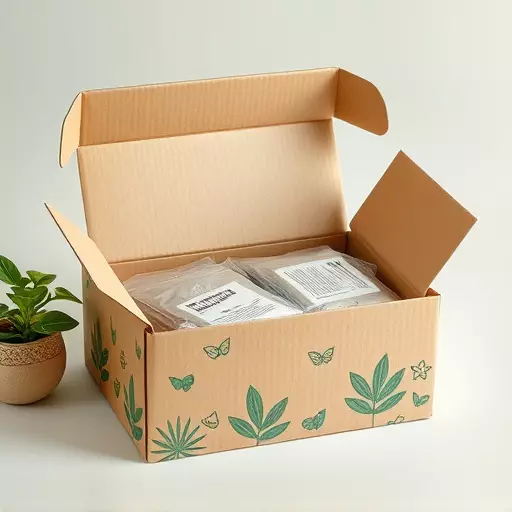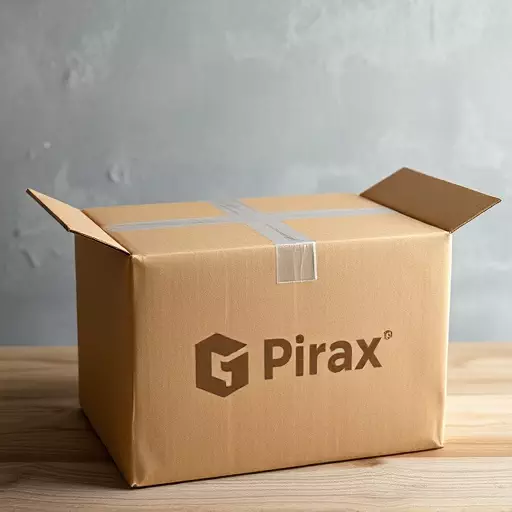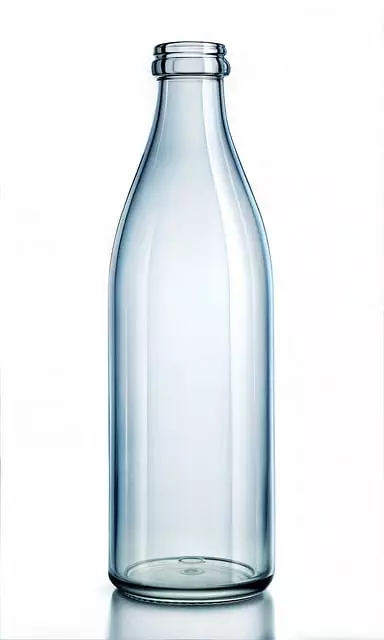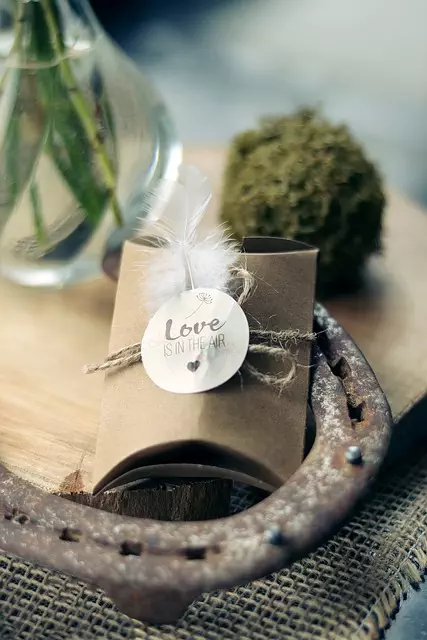Retailers are adopting fragile packaging solutions, especially custom fragile packaging made from eco-friendly materials, to protect breakable goods during transit and cater to environmentally conscious consumers. This approach reduces damage, enhances customer satisfaction, and aligns with sustainability goals by using biodegradable fillers, recycled materials, and plant-based composites. By strategically integrating eco-friendly fragile packaging, retailers can minimize environmental impact, boost brand image, and gain a competitive edge in the market.
In today’s retail landscape, ensuring product integrity during transit is paramount. This is especially true for delicate items that demand specialized care. Frail products face unique challenges posed by traditional packaging, leading to damage and increased costs. This article explores the evolution towards custom fragile packaging solutions, highlighting the benefits of innovative designs and eco-friendly materials. We’ll delve into best practices for implementation and showcase real-world examples, providing valuable insights for retailers seeking sustainable and effective fragile packaging strategies.
- Understanding Fragile Packaging Needs for Retail
- Challenges with Traditional Fragile Packaging
- Benefits of Custom Fragile Packaging Solutions
- Eco-Friendly Materials for Sustainable Fragile Packaging
- Best Practices for Implementing Fragile Packaging in Retail
- Case Studies: Effective Use of Fragile Packaging in Retail Environments
Understanding Fragile Packaging Needs for Retail

In the retail industry, ensuring product safety during transportation and delivery is paramount, especially for delicate or breakable items. This is where fragile packaging solutions come into play, offering specialized protection tailored to diverse retail needs. Custom fragile packaging allows retailers to address unique product characteristics, package shapes, and sizes, ensuring each item arrives at its destination intact. From glassware and ceramics to specialty food items and collectibles, custom packaging designs provide the necessary cushion, padding, and secure containment to prevent damage during handling and shipping.
Moreover, with growing environmental consciousness, many retailers are seeking eco-friendly fragile packaging options. This shift reflects a desire to minimize waste and adopt sustainable practices without compromising product protection. Innovative materials such as biodegradable fillers, recycled cardboard, and compostable films offer effective yet environmentally friendly solutions for fragile retail items. These alternatives not only reduce the carbon footprint but also appeal to consumers who prioritize sustainability in their purchases.
Challenges with Traditional Fragile Packaging

Fragile items present unique challenges when it comes to retail packaging, as traditional methods often fall short in ensuring safe arrival at their destination. One of the primary issues is the lack of customization; standard packaging solutions are often rigid and unable to accommodate the diverse shapes and sizes of various products, leading to potential damage during transit. This is especially problematic for retail businesses offering unique or unconventional fragile items, such as glassware, ceramics, or delicate electronics.
Custom fragile packaging has emerged as a game-changer in this space, allowing retailers to create tailored solutions that offer superior protection. By employing innovative materials and designs, eco-friendly fragile packaging can now provide the necessary cushioning and support while also being sustainable. This shift towards custom, eco-conscious options not only ensures the safety of products but also appeals to environmentally conscious consumers, addressing both practical concerns and changing market preferences.
Benefits of Custom Fragile Packaging Solutions

Custom fragile packaging solutions offer a multitude of benefits for retailers, especially in an era where product protection and sustainability are top priorities. By designing specific packaging tailored to delicate items, businesses can significantly reduce damage during transportation, ensuring customer satisfaction and minimizing returns. This approach is particularly valuable for fragile merchandise like glassware, ceramics, and electronics, which require specialized care.
Moreover, embracing custom fragile packaging allows retailers to incorporate eco-friendly materials and practices. Sustainable options such as biodegradable fills, recyclable containers, and minimal design elements not only lower environmental impact but also resonate with environmentally conscious consumers. This blend of protection, personalization, and sustainability makes custom fragile packaging solutions a compelling choice for forward-thinking retailers looking to stand out in the market while promoting responsible business practices.
Eco-Friendly Materials for Sustainable Fragile Packaging

In the pursuit of sustainable and responsible retail practices, eco-friendly materials play a pivotal role in developing effective fragile packaging solutions. Traditional packaging options often rely on non-biodegradable materials, contributing to environmental concerns. However, with growing consumer awareness, there’s a shift towards custom fragile packaging that minimises ecological impact. These innovative eco-friendly fragile packaging alternatives not only protect products during transit but also contribute to a greener planet.
Materials such as recycled paper, biodegradable polymers, and plant-based composites are emerging as viable options for creating fragile packaging solutions. They offer excellent product protection while reducing waste and carbon footprint. Moreover, these materials are often readily available, making them accessible for businesses of all sizes looking to adopt more sustainable practices in their retail operations.
Best Practices for Implementing Fragile Packaging in Retail

When implementing fragile packaging in retail, a key practice is to choose the right material for each product. This involves understanding the specific needs of delicate items, such as glassware or electronic devices, and selecting materials that offer superior protection. Custom fragile packaging solutions are increasingly popular, allowing retailers to tailor protective measures to individual products, ensuring optimal safety without excess waste.
Another best practice is embracing eco-friendly fragile packaging options. With growing environmental concerns, many manufacturers now offer sustainable alternatives to traditional packaging materials. These include biodegradable or compostable options made from plant-based resources, which reduce the carbon footprint of packaging while maintaining product integrity. By adopting these practices, retailers can enhance their sustainability efforts and appeal to environmentally conscious consumers.
Case Studies: Effective Use of Fragile Packaging in Retail Environments

In retail, the effective use of fragile packaging solutions is a key aspect of product protection and customer satisfaction. Many successful case studies highlight the strategic deployment of custom fragile packaging to safeguard delicate or breakable items during transportation and display. For instance, one prominent retailer adopted eco-friendly fragile packaging made from recycled materials for their premium glassware collection. This approach not only reduced environmental impact but also enhanced brand image among environmentally conscious consumers.
These innovative fragile packaging solutions demonstrate that protection and sustainability can go hand in hand. By utilizing advanced materials and designs tailored to specific product needs, retailers can minimize damage and maximize shelf life. Additionally, the integration of eco-friendly practices in custom fragile packaging has become a competitive advantage, appealing to a growing market segment that prioritizes sustainable consumption.


